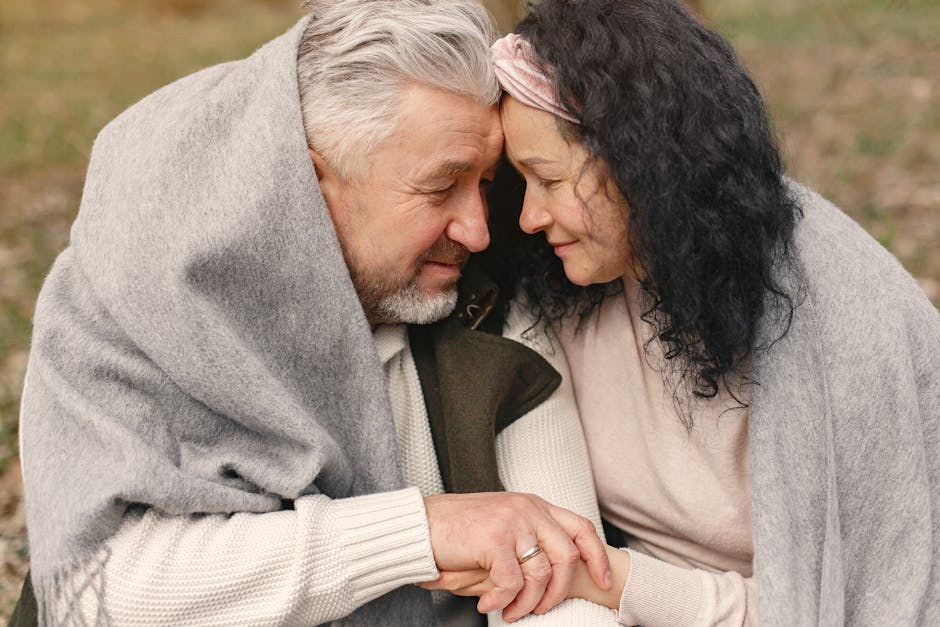There’s a special kind of ache when romantic feelings meet a platonic reality – a tug-of-war between what you wish could happen and what actually is. You can be friends with someone you love without losing yourself in the process, but it asks for clarity, boundaries, and kindness toward both people. Instead of clinging to fantasies or ghosting the connection, you can build a friendship that respects the truth of your emotions while also honoring theirs. This guide reshapes the situation into something livable, humane, and even meaningful.
First, check the foundation
Before you promise anything to yourself, pause and ask a simple question: are you already friends? If yes, there’s a base of comfort and trust to protect – that’s a good start, and it’s worth tending. If not, creating a “friendship” only as a bridge to romance is risky because the core motive isn’t friendship at all. You might tell yourself you’re being patient, but a hidden agenda drips into every interaction. If your aim is to be friends with someone you love , start by choosing honesty about why you’re there.
Some people argue that friendship is a smart prelude to romance – and it can be – but only if the friendship is real. If you stay close while quietly negotiating for an upgrade, you’ll feel slighted when your expectations aren’t met. Let the relationship be what it actually is, not what you’re trying to bargain it into becoming.

Principles that actually help
-
Begin without a hidden agenda. Friendship is an agreement to care, not a contract to convert. If you’re angling for a payoff, the other person becomes a project – and people can sense that. Decide, upfront, whether you can genuinely be friends with someone you love if nothing romantic ever happens. If the answer is no, choose distance rather than performance. It’s kinder to both of you, and it prevents resentment from fermenting underneath every “kind” gesture you offer.
-
Refuse to be a doormat. Affection doesn’t require self-erasure. Saying yes to every favor, rearranging your schedule, or rescuing them on demand is not proof of loyalty – it’s a shortcut to exhaustion. Healthy friendship has give-and-take. If you want to be friends with someone you love , act like a friend, not a valet. Respect your own time, energy, and limits; they teach others how to treat you and preserve your dignity when emotions run hot.
-
Stay respectful in the aftermath of rejection. Rejection stings, but it’s not a debt they owe you to repay. No one can be compelled to feel what you feel. Take space to metabolize the disappointment – journal, move your body, talk to a trusted confidant – and then return without bitterness. If you choose to be friends with someone you love , you’re choosing to let go of entitlement and to speak to them with the same courtesy you’d want if the roles were reversed.

-
Be a friend in deed, not just in name. Support doesn’t look like quiet sabotage. Don’t undermine their opportunities or nudge them away from choices that make them happy just because those choices don’t orbit you. Real friendship asks, “What is good for you?” – and then helps them pursue it. If your goal is to be friends with someone you love , prove it by championing their growth, not by corralling their life to soothe your longing.
-
Let yourself move forward. Feelings don’t vanish on command, but they do soften when given air and time. Grief may arrive in waves: hope surges, then recedes; you’ll imagine alternate timelines, then return to the present. Keep living anyway. Build your routines, reconnect with hobbies, and widen your circle. One of the most merciful ways to be friends with someone you love is to let your world be bigger than this one storyline.
-
Create breathing room. Constant proximity can make unrequited feelings roar. Take a week off from daily texts; skip an event; give your nervous system a break. Name it plainly – “I need a little space to reset” – rather than inventing excuses. That pause isn’t punishment; it’s maintenance. It helps you return to the friendship aligned with your decision to be friends with someone you love instead of orbiting them in a state of chronic ache.

-
Treat them as you treat other friends. If you wouldn’t drop everything to drive another friend across town at 4 a.m., don’t do it here just to score invisible points. If you normally listen when a friend vents about dating, offer the same ear. To genuinely be friends with someone you love , you have to act like a friend across the board – steady, kind, and consistent – not like a secret applicant for a promotion.
-
Never turn your hurt into hostility. Snapping, sulking, or weaponizing silence will bruise the bond and your self-respect. If a conversation stirs up jealousy or grief, excuse yourself gracefully and decompress elsewhere. Part of choosing to be friends with someone you love is learning to regulate your reactions – not by faking happiness, but by owning your feelings without making them responsible for fixing those feelings.
-
Accept their dating life. They are free to choose who they date, and you are free to choose how close you can be while that happens. Resist the urge to critique their partner – even privately. If you can’t speak kindly, speak less. You can still be friends with someone you love while acknowledging that certain conversations or details are tough for you; set boundaries that keep the friendship from becoming a stage for your envy.
-
Value the friendship on its own merits. Friendship is not a consolation prize – it’s its own form of intimacy. Laughter shared on a hard day, the shorthand you build over time, the way you witness each other’s lives – all of that counts. If you choose to be friends with someone you love , don’t treat the friendship like a waiting room. It’s a living room. Show up to it fully, or be courageous enough to step back.
-
Stop pining as a pastime. Hope can be beautiful – and corrosive – when it hardens into a habit. If you’re stuck in “maybe someday,” you’re not in the present. Make a plan that favors reality: limit fantasy spirals, redirect your attention when they appear, and fill your calendar with things that matter. To be friends with someone you love is to choose the here-and-now over an imaginary later.
-
Say yes to meeting other people. Openness isn’t betrayal; it’s self-care. Accept invitations, flirt lightly, explore connections that spark curiosity. Even if nothing sticks, you’ll remember that chemistry exists elsewhere. Ironically, your ability to be friends with someone you love often grows when your romantic life stops revolving around them like a sun you can’t escape.
-
Don’t engineer jealousy. Parading a date to provoke a reaction only cheapens everyone involved. It makes you look calculating and puts the other person – the one you just used – in an unfair position. If your hope is to be friends with someone you love , practice integrity. Let your choices be clean, even when your feelings are complicated.
-
Refuse guilt as a tactic. “After all I’ve done for you…” is not a sentence that belongs in friendship. Love given with strings attached isn’t love – it’s leverage. They aren’t failing you by not reciprocating. Choose clear, non-accusatory language for your needs, or choose distance if you can’t do that yet. The path to be friends with someone you love isn’t paved with pressure; it’s paved with consent and respect.
-
Speak up when silence starts to chafe. Sometimes the healthiest move is disclosure – not as a demand, but as a truth. If bottling up your feelings is eroding the friendship, say so with care. “I value you, and I also have feelings I’m working through.” Share what you need afterward: space, a reset, or simply clarity. Whatever the outcome, you’ll be closer to the version of yourself who can be friends with someone you love honestly.
-
Repair your self-esteem. Unreturned affection can whisper lies – that you’re not attractive enough, interesting enough, or “enough” at all. Don’t let that story settle in. Build small proofs of worth: keep promises to yourself, move your body, pursue competence in something you care about. The stronger your sense of self, the easier it is to be friends with someone you love without confusing their preferences with your value.
-
Remember that romance changes the equation. People don’t act the same in every context. Someone who is relaxed and generous as a friend may carry different habits in a relationship – different needs, conflicts, or quirks that only appear with intimacy. Part of choosing to be friends with someone you love is recognizing that your daydream is a highlight reel, not a documentary.
-
Clarify what you actually want. Write down your non-negotiables and your deal-breakers in a partner. Then, compare those lists to the real person in front of you. Sometimes we fixate on someone who wouldn’t truly fit our life. If your lists don’t align, it becomes easier to be friends with someone you love because you can see – in black and white – that compatibility and chemistry aren’t the same thing.
-
Adjust your lens. Perspective is powerful. Interpreting this chapter as proof that you’re unlucky will paint your days in grayscale. Seeing it as a doorway – toward self-knowledge, toward better boundaries, toward connections that match you back – adds color. To be friends with someone you love is to choose a viewpoint that doesn’t punish you for being open-hearted.
-
Practice acceptance – then act accordingly. Acceptance isn’t surrender; it’s alignment with reality. You don’t have to like the facts to work with them. Once you accept that you’re not a romantic match, decisions become simpler: how much time you can spend, what topics are tender, whether a pause would help. Acceptance clears the static so you can be friends with someone you love without living in constant emotional whiplash.
How to structure your days so feelings don’t run the show
Choose routines that steady you – morning movement, a standing call with a friend who isn’t part of this triangle, focused time on work that matters. Emotional storms feel less overwhelming when your day has anchors. If you plan to be friends with someone you love , give your schedule places where longing can’t automatically take over: classes, volunteer commitments, creative projects, or simple rituals like cooking on Sundays.
When you do spend time together, practice mindful framing. Ask yourself in advance: “What kind of hangout is kind to me right now?” Maybe group settings are easier than one-on-one dinners; maybe a walk is safer than a movie that invites quiet rumination. Boundaries work best when you set them early – and when you communicate them without apology.
Talking about it – or not – with tact
If you choose a conversation about your feelings, keep it brief and clear. Own your experience without grand gestures or ultimatums. The point isn’t to perform worthiness but to honor the truth. Afterward, state your plan: perhaps you’ll take a short break, or perhaps you’ll carry on with adjusted expectations. If you decide not to talk, that’s valid too – you can still be friends with someone you love by quietly adjusting your habits while you let time do its healing work.
Either way, don’t ask them to manage your emotions. They can offer empathy, but the work of soothing, processing, and recalibrating is yours. That responsibility is part of being an adult and part of the dignity of loving someone – even when that love isn’t mirrored back.
Friendship that honors both people
At its best, friendship isn’t a waiting room for romance – it’s a place where two humans are glad to exist in each other’s lives. If you’re going to be friends with someone you love , orient around mutual care: check in, celebrate milestones, step back when needed, and keep the promises you make. Let the friendship breathe instead of bottling it inside a “someday” that keeps not arriving.
A useful mindset shift is this: you are not guarding a flame hoping it turns into a wildfire; you are tending a lantern that lights both your paths as you walk in different directions. That image keeps your heart warm without burning your fingers. It also leaves room for a delightful surprise – that one day, perhaps with someone else, you won’t have to work so hard to be chosen back.
A different kind of happy ending
There is quiet power in acceptance, and there is grace in staying kind. The goal isn’t to pretend your feelings never existed, but to place them where they belong – in the story you tell yourself about courage and care. You can be friends with someone you love and still make room for your own joy. And if, in time, the path bends and the friendship needs more distance than closeness, that too is a form of respect. Either way, you’ve practiced the art of loving well: naming reality, choosing boundaries, and letting affection become something generous instead of something that hurts.